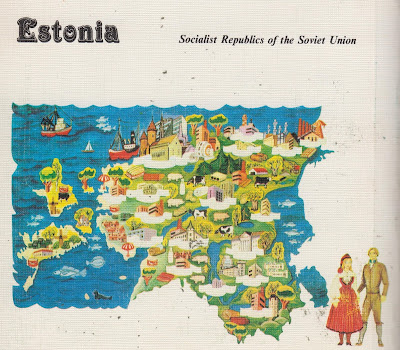Over the past several months we have been taking a look at these books and the republics. The books have been slightly edited for length and repetition in some cases and the photographs and illustrations have been dispersed more evenly throughout the text.
In our two most recent posts in the series we looked at the Byelorussian and Armenian SSRs in 1986 and 1987. Written by Estonian journalist Ressi Kaera, this booklet looks at the Estonian SSR in 1987.
This installment begins with the geography of Estonia and then has a brief overview of its history including its revolutionary movements in the early 20th century and the proclamation of the Estland Workers Commune by Red Estonian riflemen in late 1918 that ended up being overthrown by the western armies intervening against the Bolsheviks.
It takes a look at the Estonian capital of Tallinn and the internationally recognized efforts that were made to preserve its rich architectural heritage, at Tartu State University, the renowned theatre in Parnu, the Estonian literary and artistic scene at the time, the growth of Estonian museums and cultural preservation, sports and various folk festivals in the republic.
There is also an extensive section on Estonian industry, fishing and agriculture, including an in-depth look at the Viru collective farm and its housing, educational and cultural facilities.
(click on scans to enlarge)






































































































No comments:
Post a Comment